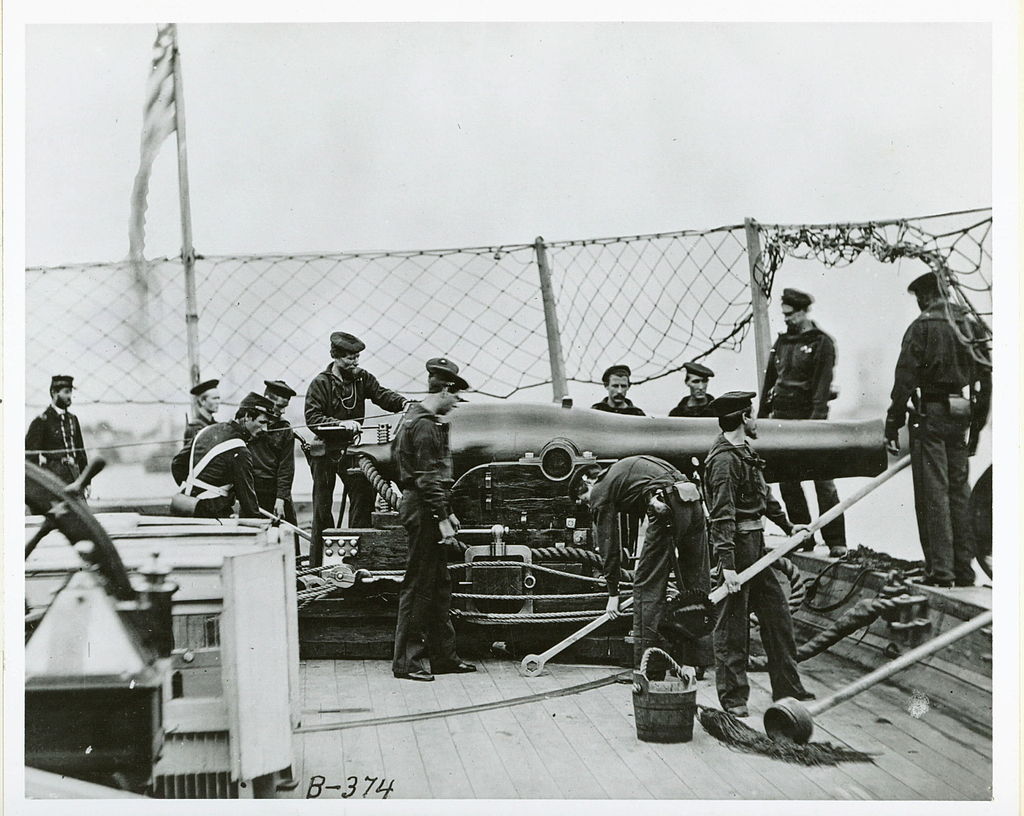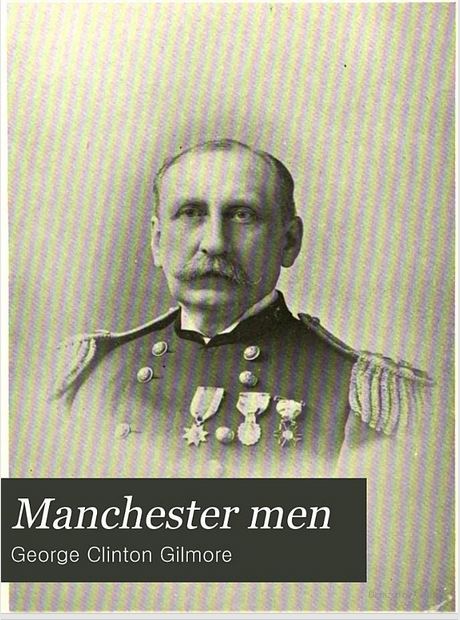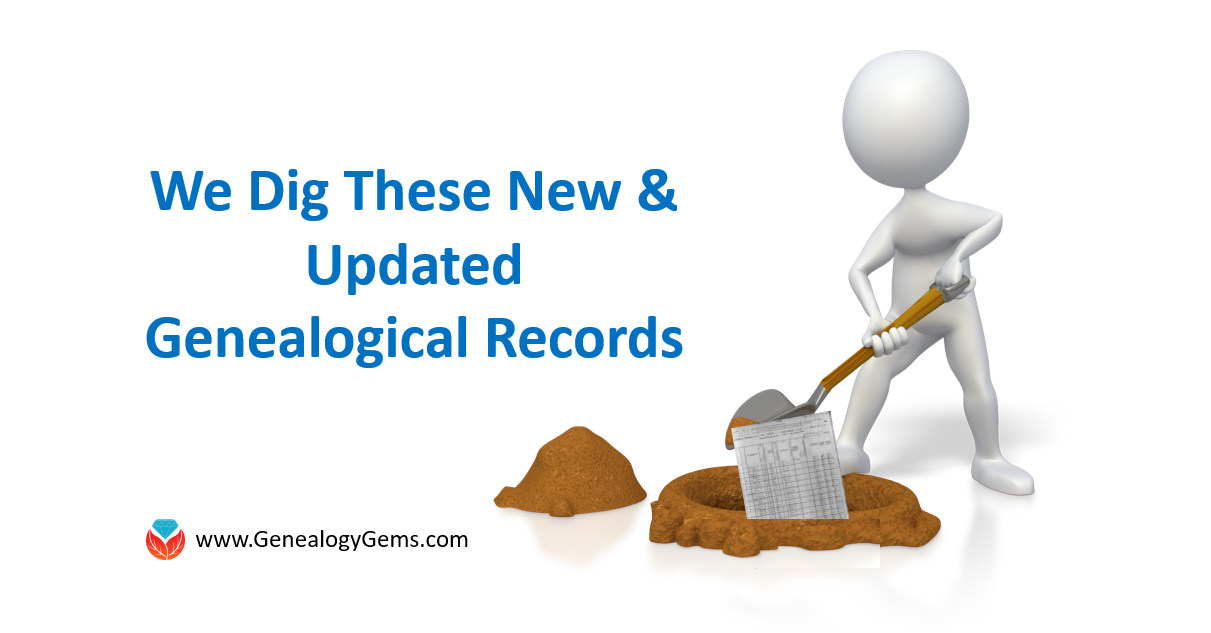by Lisa Cooke | May 23, 2015 | 01 What's New, African-American, images, Listeners & Readers, Military, Records & databases, United States, Volunteer

Dahlgren gun on a Civil War ship (Photo Public Domain)
Recently Tom wrote in with a question about a Civil War veterans database:
“I’ve been a listener of your podcast for quite a long time. Great job.
“We have a grass-roots group trying to locate and document Civil War Veterans buried in Washington state. Is there a good website where I can enter a name and unit identification and get results of the person’s [Civil War] service? I’m having a really hard time finding US Navy sailors.”
It sounds like Tom is conducting a very worthwhile project! (We added the link above to the website for the project, in case you’re interested.) An excellent resource–still in progress for sailors with only about 20% of them–is The Civil War Soldiers and Sailors System (CWSS).
The site describes its resources as a “database containing information about the men who served in the Union and Confederate armies during the Civil War. Other information on the site includes histories of Union and Confederate regiments, links to descriptions of significant battles, and selected lists of prisoner-of-war records and cemetery records, which will be amended over time.”
This is an excellent resource for soldiers. As far as sailors go: “The Civil War Soldiers and Sailors System currently contains the records of approximately 18,000 African American sailors, though additional records will be added in the future. The information in the Sailors Database is derived from enlistment records and the quarterly muster rolls of Navy vessels. Approximately half of the sailors entered the service at the Navy’s established points of enlistment. For these men and women, enlistment records serve as the primary sources of information. The Howard University research team used muster rolls to fill in missing data or to correct apparent misinformation recorded at the time of enlistment. Information about the remainder of the enlistees was derived directly from these muster rolls. When research uncovered inconsistencies in the data (such as conflicting reports of an individual’s age at the time of enlistment) the most frequently recorded response was used.”
“Descendants of Civil War sailors will find biographical details regarding age, place of birth, and occupation that may help supplement or clarify details from such other sources of genealogical information as birth, death, and census records. Moreover, information about any individual sailor’s enlistment and service is necessary for determining the presence or absence of their pension records at the National Archives.” Click here to read an article from the National Archives about African-American servicemen in the Navy in the Civil War. I covered the Civil War Soldiers and Sailors database in the free Genealogy Gems Podcast Episode 149. Be sure to check out the show notes page (click the link I’ve provided.) There you’ll find the information written out for you and the links I discuss in the episode.

Manchester Men available free at Google Books
If a Navy ancestor isn’t among those already listed, my first instinct is always to turn to Google searches first. I ran a search in Google Books for free (fully digitized) books meeting the criteria “civil war” “sailors” and there are some resources there as well. Here’s a link to the search results. One example is the book shown here to the left: Manchester Men, which appears to be a published list of those who served from Manchester, N.H. (click on the book cover to read it in Google Books). Learn more about Google searching for “niche” topics like this in the fully-revised and updated edition of my book, The Genealogist’s Google Toolbox.
by Lisa Cooke | Jul 29, 2013 | 01 What's New, Conferences, DNA, Inspiration, NARA
 Hello from Genealogy Gems Contributing Editor Sunny McClellan Morton. I’m still flying high after a week just spent at GRIP, the Genealogical Research Institute of Pittsburgh. This was like mini-graduate school for genealogists, complete with a lush green campus in the rolling hills of Pennsylvania; immediate access to legendary instructors; rigorous coursework that’s exactly what I want to learn; a great genealogy bookstore; and plenty of after-hours socializing.
Hello from Genealogy Gems Contributing Editor Sunny McClellan Morton. I’m still flying high after a week just spent at GRIP, the Genealogical Research Institute of Pittsburgh. This was like mini-graduate school for genealogists, complete with a lush green campus in the rolling hills of Pennsylvania; immediate access to legendary instructors; rigorous coursework that’s exactly what I want to learn; a great genealogy bookstore; and plenty of after-hours socializing.
While I was there, GRIP announced an exciting lineup for 2014 (it’s not even on their website yet). Here are the topics and instructors:
- Finding and Documenting African-American Families with J. Mark Lowe, CG, and Deborah Abbott, PhD.
- Practical Genetic Genealogy with Debbie Parker Wayne, CG, CGL, CeCe Moore and Blaine Bettinger, PhD, JD.
- Law School for Genealogists with Judy G. Russell, JD, CG, CGL and Richard G. “Rick” Sayre, CG, CGL.
- Becoming an Online Expert: Mastering Search Engines and Digital Archives with D. Joshua Taylor, MA, MLS.
- Determining Kinship Reliably with the Genealogical Proof Standard with Thomas W. Jones, PhD.
- Intermediate Genealogy: Tools for Digging Deeper with Paula Stuart-Warren, CG, FMGS, FUGA.
All those initials after these instructors’ names means tons of expertise is poured into every GRIP experience, and if you know any of these folks you know there’s not a “boring professor” among them!
If you’re ready for seriously advanced genealogy education, check out GRIP or other learning experiences like it. In the United States, I know about SLIG in Salt Lake City, IGHR at Samford University in Birmingham, and NIGR at the National Archives. There are also more flexible (but still demanding) options like ProGen Study Groups, Boston University’s Genealogical Research Programs and the National Genealogical Society’s American Genealogy Home Study course.
Don’t forget to check out programs and conferences offered by your own state, regional and local genealogical societies. They usually offer a variety of topics for beginners to more advanced students–and they’ll be closer to home and less expensive. Our own Genealogy Gems premium memberships offers a fabulous genealogy education for a fabulous price: in addition to premium podcast episodes, you also get a new, full-length video tutorial every MONTH to watch whenever you like, along with unlimited access to all previous full-length video tutorials. Check out our list of Premium Videos here.
by Lisa Cooke | Apr 22, 2016 | 01 What's New, Records & databases
 Here’s our weekly roundup of new genealogy records online. This week: Great Britain, Ireland, Sweden, the U.S. and Australia.
Here’s our weekly roundup of new genealogy records online. This week: Great Britain, Ireland, Sweden, the U.S. and Australia.
AUSTRALIA LAND. Land grant deeds for Tasmania, Australia (1804-1935) are now searchable on Ancestry.com. The format and content varies: sometimes you’ll find the name, location, description, date, payment amount and witnesses. These records come from the Tasmanian Archive and Heritage Office.
AUSTRALIA NEWSPAPERS. Over 700 newspapers digitized by the National Library of Australia (NLA) are now searchable at MyHeritage.com. This collection is also searchable at Trove, the digital newspaper library for the NLA. The benefit to having this collection at MyHeritage.com is that the site uses its Record Match technology to automatically search the newspapers for individuals on your tree, matching on several parameters to improve search results.
AUSTRALIA WWII. A new index to Australia World War II military service records (1939-1945) is available on Ancestry.com. It covers the Australian Army, Royal Australian Navy and Royal Australian Air Force. Records “commonly contain biographical information supplied on enlistment, as well as important details on a person’s service.” See info on ordering the original records from the National Archives of Australia in the Ancestry.com collection description.
GREAT BRITAIN – DIRECTORIES, ALMANACS. Ninety new volumes of directories and atlases (late 1800s and early 1900s) have been added to Findmypast’s online collection, “Great Britain, Directories & Almanacs.” According to the collection description, “Inside you will find the names of prominent people, tradesmen, people who held office, business owners and local civil servants. Discover your ancestor’s address and occupation or explore the history of your home address. The almanacs and directories stretch across three centuries.”
IRELAND – HISTORICAL. A new historical collection relating to the Easter Island uprising is available on Findmypast.com. This collection is free to search until April 27, 2016. According to a company rep, the database draws on “75,000 records that tell the story of one of the most difficult periods in 20th century Irish history. These records, once classified, include eye witness accounts, interviews with civilians and reports of the trials of the leaders of the Rising and their sentences of execution. The release also includes 25,000 search and raid records, giving detailed insights into how the Irish people of the period lived under martial law.”
SWEDEN EMIGRATION. Ancestry.com has posted a new database with over 1.3 million entries of emigrants listed in church books, 1783-1991. That represents about 75% of emigrants, of people leaving the country, during that time span. The records and index are in Swedish. This database was previously available in CD format under the name “Emibas.”
U.S. WILLS. Ancestry.com’s enormous collection of U.S. wills and probate records has been updated for the following states: Ohio, Alabama, New York, New Jersey, Arkansas and Georgia.
 Thank you for sharing this list with every genealogist you know who might be interested! We love sharing good news about new genealogy records online.
Thank you for sharing this list with every genealogist you know who might be interested! We love sharing good news about new genealogy records online.
by Sunny | May 5, 2018 | 01 What's New, Family History Library, FamilySearch |
Every genealogist should know how to search the FamilySearch Catalog, a portal to nearly 750 million FREE historical record images you won’t find anywhere else on the site! These digitized records are being updated DAILY by camera teams who are digitizing...




 Here’s our weekly roundup of new genealogy records online. This week: Great Britain, Ireland, Sweden, the U.S. and Australia.
Here’s our weekly roundup of new genealogy records online. This week: Great Britain, Ireland, Sweden, the U.S. and Australia. Thank you for sharing this list with every genealogist you know who might be interested! We love sharing good news about new genealogy records online.
Thank you for sharing this list with every genealogist you know who might be interested! We love sharing good news about new genealogy records online.